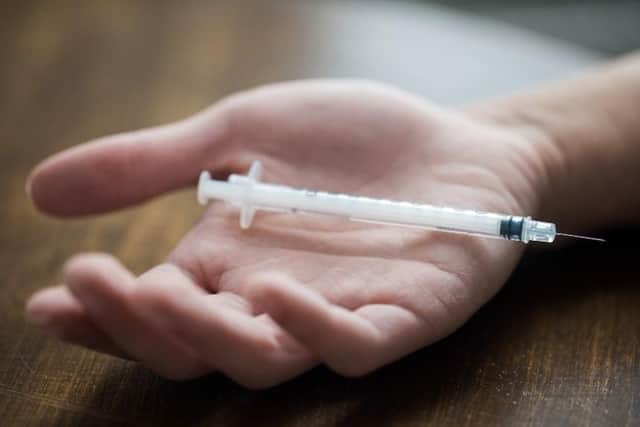£5.6m to be invested in new drugs strategy for Nottinghamshire
and live on Freeview channel 276
Council figures estimate ‘at least’ 172,725 residents in Nottinghamshire could benefit from substance misuse intervention and an estimated 4,436 people depend on opioids, including heroin and/or crack cocaine, countywide.
The data also estimates about 131,011 adults drink harmful levels of alcohol each week, with 21,632 people dependent on alcohol in Nottinghamshire.
Advertisement
Hide AdAdvertisement
Hide AdThese figures, the authority adds, are ‘likely to be under-estimates’, due to the ‘hidden nature’ of some substance misuse.


The data was published by the council as it responds to the Government’s 10-year From Harm to Hope drugs strategy.
The strategy, discussed at the council’s latest adult social care and public health committee meeting, sets out a series of objectives to be implemented nationwide to target drug and alcohol addiction.
The national strategy aims to cut the supply of drugs and give people affected by drug addiction a ‘route to a productive and drug-free life’.
Advertisement
Hide AdAdvertisement
Hide AdIt will prioritise breaking drug supply lines, delivering a ‘world-class’ treatment and recovery system and achieving a ‘generational shift’ in demand for drugs.
It is hoped 54,500 treatment places will be created over the coming decade, alongside 21,000 places for opiate and crack users.
A treatment place would also be created for every offender with an addiction, with 30,000 further places for non-opiate and alcohol users.
And the strategy, if implemented successfully, would lead to 24,000 more people in long-term recovery from substance dependence, alongside 5,000 more young people in treatment within 10 years.
Advertisement
Hide AdAdvertisement
Hide AdThis will come alongside the recruitment of 800 more medical and mental health professionals, and 950 more drug and alcohol criminal justice workers.
Councils, supported by Government funding, will be expected to develop a strategic board to tackle the issue, increase the number of community treatments and provide additional detoxification places.
Coun Matt Barney said: “We’re talking about absolute destruction and despair and the ramifications of that to the wider family context, to communities, to the drug and criminal gangs.
“There is optimism in this, bringing in what’s needed critically to deliver substantial change.”
Sarah Quilty, council senior public health and commissioning manager, said the authority has got an additional £5.6 million to put into treatment and inpatient detoxification.